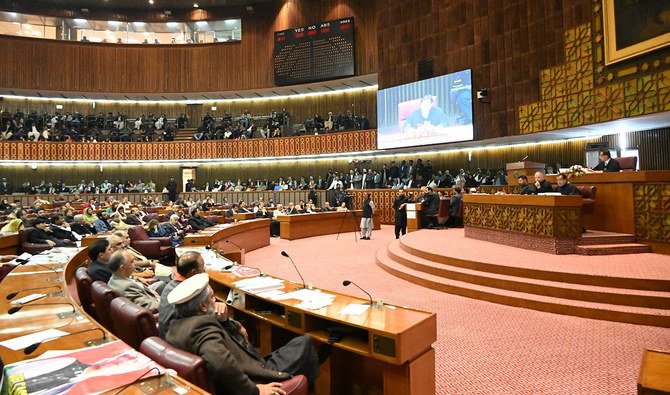IMF Bailout: Introduction
Pakistan is near the edge of getting another bailout from the Worldwide Money related Assets (IMF). This news has sent swells through the country’s financial scene, stressing the basic place where Pakistan tracks itself. The Money Pastor’s new desperate admonition intensifies the weightiness of the circumstance, highlighting the pressing requirement for far-reaching monetary changes.
Background of IMF Bailouts in Pakistan
Pakistan has a long history of going to the IMF for monetary help. Throughout many years, the nation has looked for numerous bailouts to balance out its economy. The purposes behind these incessant bailouts range from persistent monetary shortfalls to political shakiness and outside financial shocks. Each bailout has accompanied rigid circumstances toward rebuilding the economy and guaranteeing feasible development.
Current Monetary Circumstances in Pakistan
At this point, Pakistan’s economy is wrestling with a few difficulties. Expansion rates are taking off, the monetary shortage is extending, and unfamiliar trade holds are waning. Key monetary markers, for example, Gross domestic product development and business rates, are not laying out a good picture. These difficulties have required the solicitation for another IMF bailout.
The Requirement for Another IMF Bailout

The ongoing solicitation for an IMF bailout is driven by a blend of inner and outer elements. Locally, the public authority is attempting to oversee public funds amid a drowsy economy. Remotely, worldwide monetary circumstances have placed extra strain on Pakistan’s exchange and speculation streams. Government authorities, including the Money Clergyman, have featured these issues in their proclamations, highlighting the pressing requirement for monetary help.
The Finance Minister’s Dire Warning
In a new location, the Money Pastor gave a distinct admonition about the province of Pakistan’s economy. He stressed the seriousness of the monetary emergency and the expected results if the prompt move isn’t made. The Pastor’s admonition featured the need for the IMF bailout and the intense monetary choices that lie ahead. This sincere confirmation highlights the basic idea of the ongoing financial quandary.
Monetary Changes Recommended by the IMF
The IMF’s help regularly accompanies a bunch of suggested financial changes. These changes are intended to settle the economy, decrease monetary deficiencies, and advance economic development. For Pakistan, the recommended changes incorporate measures like decreasing sponsorships, expanding charge incomes, and further developing administration in open foundations. While these changes are fundamental, they likewise present critical difficulties for the public authority and the general population.
Public and Political Reaction
The declaration of one more IMF bailout has inspired blended responses from general society and political circles. On one hand, there is an acknowledgment of the requirement for monetary help to keep away from a financial breakdown. Then again, there is misgiving about the rigid circumstances that go with IMF help. Popular assessment is partitioned, with some reviewing the bailout as a means to an end, while others condemn the public authority’s dependence on the outer guide.
Comparative Analysis with Other Countries
Pakistan isn’t the only one in that frame of mind on IMF bailouts. Numerous nations have looked for IMF help to explore monetary emergencies. By inspecting the encounters of different countries, Pakistan can gather important examples. For example, nations like Argentina and Greece have gone through different IMF programs, each with changing levels of accomplishment. Understanding these case studies can help Pakistan better navigate its own bailout process.
The Job of Worldwide Relations
Pakistan’s relationship with the IMF is molded by more extensive global relations. The international scene impacts the agreements of the bailout. Also, Pakistan’s coalitions and contentions on the worldwide stage can influence its financial steadiness. The job of global discretion can’t be undervalued in getting good terms from the IMF and other worldwide partners.
Momentary versus Long Haul Effects
The prompt effect of the IMF bailout will probably be an adjustment of Pakistan’s monetary circumstances. Be that as it may, the drawn-out impacts will rely heavily on how well the suggested changes are executed. Temporarily, there might be grim estimates that could prompt public discontent. Over the long haul, effective changes could prepare for supportable monetary development and advancement.
Likely Dangers and Disadvantages
While the IMF bailout offers help, it likewise accompanies expected gambles. The severe circumstances might prompt social distress assuming they bring about decreased public spending and higher expenses. Moreover, there is the gamble of turning out to be excessively dependent on outside help, which could subvert homegrown financial power. To moderate these dangers, the public authority should cautiously offset change execution with social and political soundness.
Potential Open Doors for Financial Development
Despite the difficulties, the IMF bailout additionally presents amazing open doors for financial development. With monetary steadiness, Pakistan can draw in unfamiliar speculation and lift its commodity areas. Besides, the changes can prompt better administration and productivity in open organizations, cultivating a more favorable climate for financial turn of events. Recognizing and utilizing these valuable open doors will be urgent for Pakistan’s financial recuperation.
Future Viewpoint for Pakistan’s Economy
The eventual fate of Pakistan’s economy depends on the effective execution of the IMF-suggested changes. If the public authority can explore the quick difficulties and lay the preparation for economic development, the drawn-out viewpoint could be positive. Proceeded with watchfulness, powerful arrangement-making, and global collaboration will be fundamental in controlling the economy towards dependability and thriving more at Time Daily News.
FAQs
1. What is the IMF?
The International Monetary Fund (IMF) is an international organization that provides financial assistance and advice to member countries facing economic difficulties. Its goal is to promote global economic stability and growth.
2. Why does Pakistan need another bailout?
Pakistan needs another bailout due to a combination of internal economic challenges, such as fiscal deficits and inflation, and external pressures from global economic conditions. The bailout aims to stabilize the economy and implement necessary reforms.
3. How will the IMF bailout affect the average Pakistani?
The IMF bailout may lead to short-term austerity measures, such as reduced public spending and higher taxes, which could impact the average Pakistani. However, the long-term goal is to create a stable and growing economy that benefits everyone.
4. What reforms will the IMF require?
The IMF is likely to require reforms aimed at reducing fiscal deficits, increasing tax revenues, improving governance, and enhancing public sector efficiency. These reforms are designed to create a more sustainable economic framework.
5. Can Pakistan avoid future bailouts?
Avoiding future bailouts will depend on the successful implementation of economic reforms and maintaining fiscal discipline. Building a resilient economy that can withstand internal and external shocks is key to reducing reliance on external aid.



